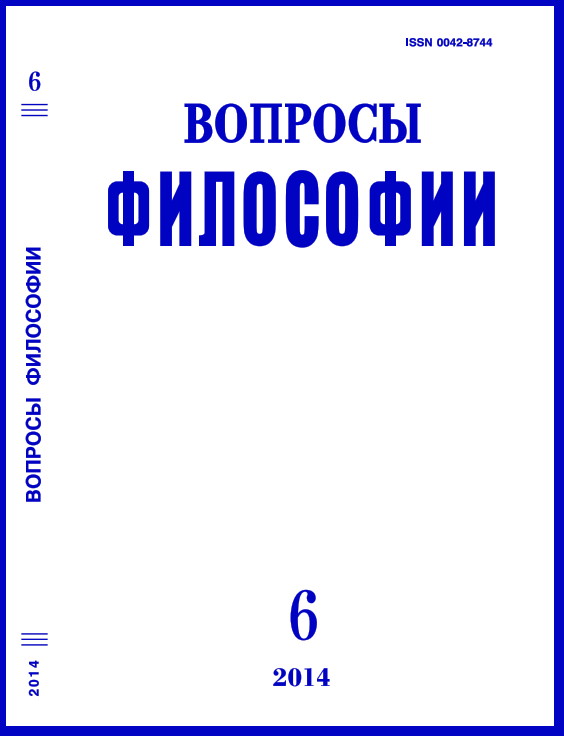The Atomistic Principle in Conceptualizing the Natural Verbal Communication: Corporality of Alphabet and “Language”
Keywords:
atomism, alphabet, language, natural verbal communication, ways of fi xing communicative actions, corporality of linguistic elementsAbstract
In the article atomism is considered as a synonym of the principle of natural analytism which forms the basis for both the doctrine of the smallest particles, and for the alphabet. The author criticizes the erroneous statements arising from understanding linguistic object as sets of meaningful and formal corporal unities (words), offering an explanation of phenomena of natural verbal communication within the concept of communicative action which gives the opportunity to localize the meaning-generating process in the consciousness of a speaker, and to relieve the object-focused linguistic theory from “ridicule” (which was ever noticed by Plato). Instead of theoretically inefficient concept “language” the author admits the fundamental value of communicative typology and communicative syntax with which the consciousness of a speaking operates. The author doesn’t see fundamental differences between alphabetic and hieroglyphic ways of fixing “the verbal matter”, considering them secondary in relation to natural communicative process during which personal, situational, conscious actions are made and interpreted. In author’s opinion, atomistic (naturally analytical) approach to a verbal form disorients the theory of verbal communication because it represents the verbal communicative process in the form of a simplified direct-flow scheme “corporal sign –imaginable meaning”. Therefore the value of atomism as a method in the field of linguistics is determined by a working capacity measure in a given descriptive scheme, not in the absolute
measure.

